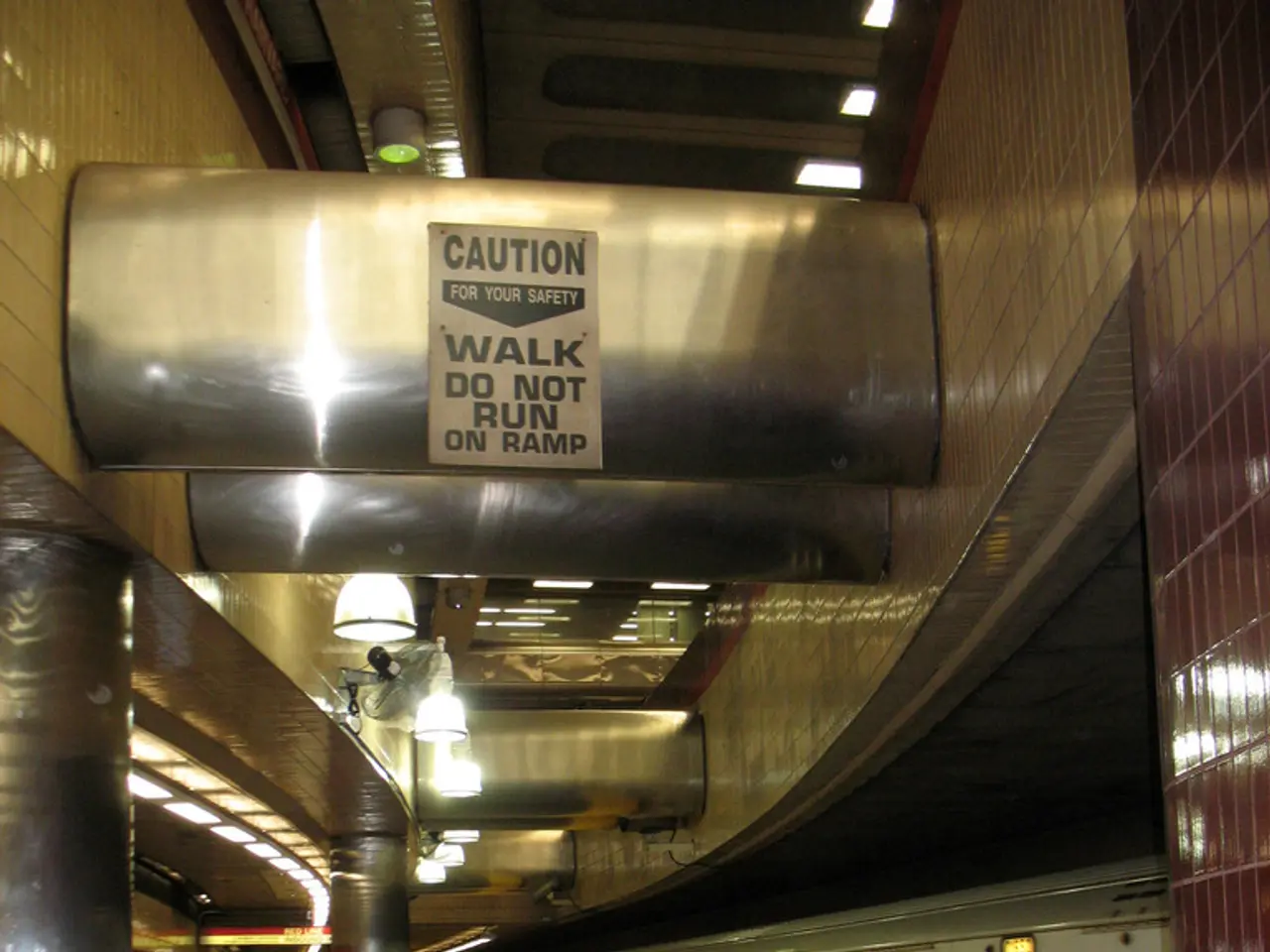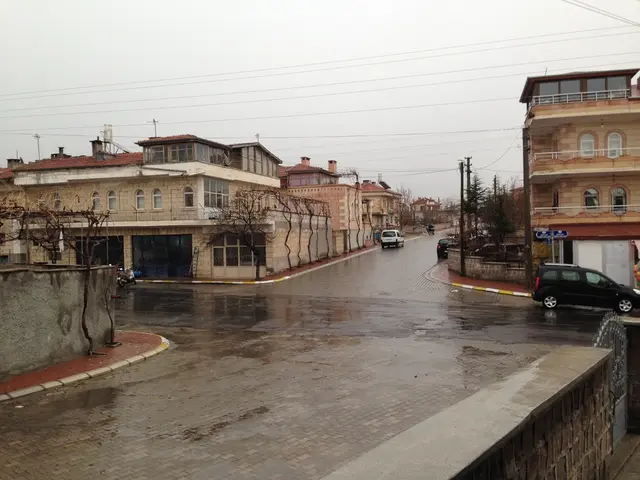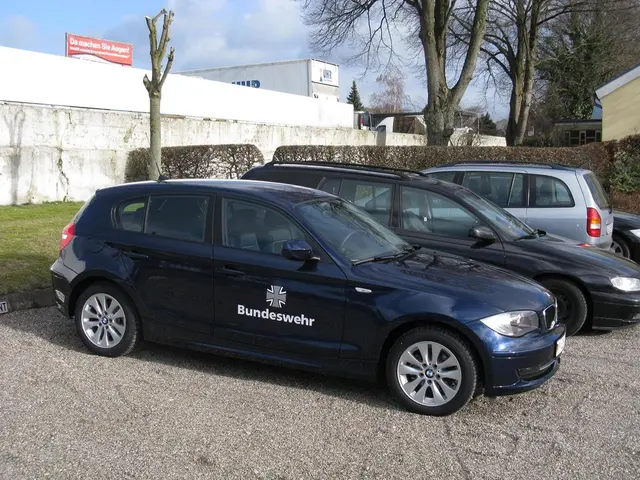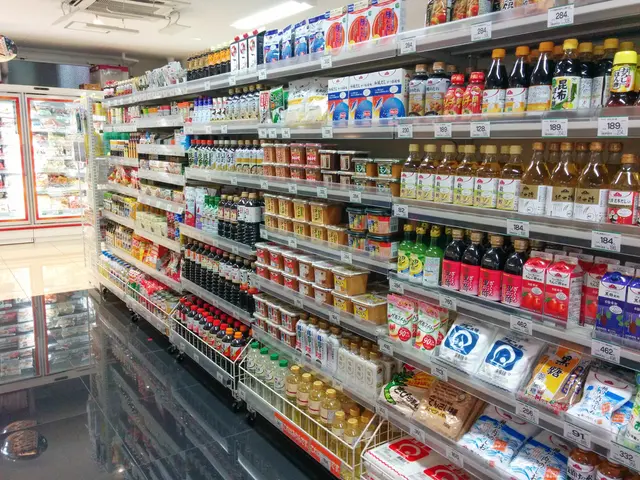"When the rhythm of the train falters, so does the harmony of the conductor"
The sudden outage of S-Bahn line 3 between Essen and Oberhausen for over a month has left commuters in disarray, and two prominent politicians, Julia Kahle-Hausmann and Frederick Cordes, are demanding a satisfactory solution.
Kahle-Hausmann, a state parliamentarian for Essen, and Cordes, representing Oberhausen, have expressed their dissatisfaction with the offered alternative, the RE49, which also frequently experiences delays and outages. They have linked the S-Bahn line 3 outage to the hindrance of the mobility transition in the Ruhr region.
Cordes, the SPD state parliament faction's expert on training and skilled workers, attributes the S-Bahn line 3 outage to years of under-training, excessive overtime, and high sickness rates among train drivers. He advocates for better training and working conditions to attract more people to the train driver profession and supports the train workers, expecting the railway to meet its responsibilities.
Kahle-Hausmann, on the other hand, believes that until buses and trains run on time, people in the region prefer to drive. She wants a public transport system in the Ruhr region fit for a metropolitan area, suitable for a region known for its high population density and industrial activity.
The outage of S-Bahn line 3 has taken many rail passengers by surprise. The line's persistent reliability issues are primarily due to aging infrastructure and insufficient modernization efforts. Technical failures and service disruptions have become increasingly common as the line struggles with outdated signaling and track conditions.
Politically, there have been calls from opposition parties and commuter advocacy groups demanding accelerated investments and urgent reforms in regional rail transport. The ruling coalition in North Rhine-Westphalia (NRW) has responded by pledging to increase funding for rail infrastructure upgrades and enhance coordination with Deutsche Bahn to reduce outages. They emphasize prioritizing modernization projects on S-Bahn routes like the S3 to improve punctuality and service quality for daily commuters.
These political responses reflect a broader recognition of the importance of reliable public transport networks in one of Germany’s most densely populated and industrialized regions. However, progress is ongoing and subject to budgetary and logistical constraints. Specific recent resolutions or legislative moves targeting the S3 line outages have not been detailed, indicating the issue remains under active discussion within NRW political circles and transport agencies.
Cordes stated that the sudden outage of S-Bahn line 3 for a month without a clear explanation is unacceptable. He emphasized that commuters' routines, including childcare, work hours, and family care, are affected by the outage. He pointed out that the unpredictability of daily life due to train delays is not just about longer wait and travel times.
In conclusion, the outage of S-Bahn line 3 has highlighted the need for improved public transport in the Ruhr region. Kahle-Hausmann and Cordes urge for a satisfactory solution to the S-Bahn line 3 outage and a public transport system fit for a metropolitan area. They continue to advocate for better training and working conditions for train drivers and increased funding for rail infrastructure upgrades.
- The politicians Julia Kahle-Hausmann and Frederick Cordes, concerned about the S-Bahn line 3 outage and its impact on public transportation in the Ruhr region, have appealed for a modernized railway infrastructure and enhanced working conditions for train drivers.
- The ongoing outage of S-Bahn line 3 has raised concerns in the finance sector, as the delays and disruptions could lead to economic losses and increased transportation costs for commuters and businesses alike.
- As the general-news media continues to cover the S-Bahn line 3 outage, there is growing attention focused on the role that the industry and politics play in addressing this issue, with a particular focus on the need for a reliable and efficient public-transit system in a region known for its industrial activity.




